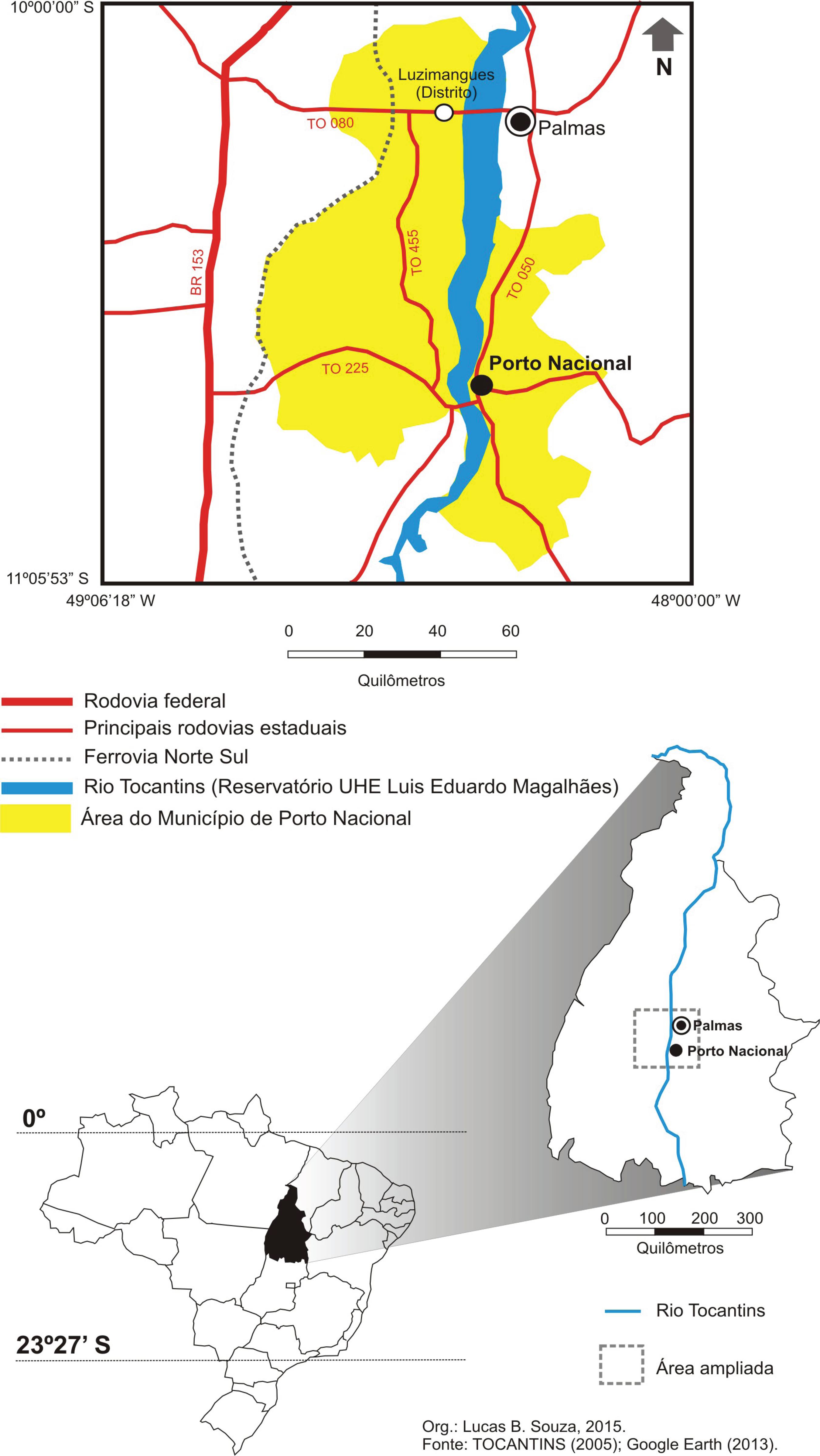Abstract
By consistent and clear urbanization process of the territory and the recent federal public policies aimed at the housing sector, the conjuncture formed by the advance of Brazil's agricultural frontier has sometimes presented exaggerated urban expansion in major cities in the State of Tocantins. The city of Porto Nacional, in turn, is a notorious example of this phenomenon. This urban expansion has been based on an excessive commercial character, leading to an allotment of the ground, through the division of the land into lots, which clearly exceeds local demand for new housing. The deliberate purchase of urbanized land takes the form of speculative practice, leading to the formation of urban voids. The key players involved in implementing these housing areas adopt strategies to maximize the extraction of income from the land to the detriment of technical criteria for urban and environmental order. By using ideas derived from both human and physical geography, this article seeks to highlight the links between this model of urban expansion and environmental impacts. So, the current and the potential negative consequences of urban environmental quality are problematCized, by taking the city of Porto Nacional as empirical reference.
Key words:
Housing area; Real estate speculation; Urban voids; Urban environmental impacts




 Photograph: Lucas B. Souza, June/2015
Photograph: Lucas B. Souza, June/2015
 Photograph: Lucas B. Souza, June/2015
Photograph: Lucas B. Souza, June/2015
 Photograph: Lucas B. Souza, June/2015.
Photograph: Lucas B. Souza, June/2015.
 (Photograph: Lucas B. Souza, November/2009).
(Photograph: Lucas B. Souza, November/2009).
 (Photograph: Lucas B. Souza, June/2015).
(Photograph: Lucas B. Souza, June/2015).
 (Photograph: Lucas B. Souza, June/2015).
(Photograph: Lucas B. Souza, June/2015).
 (Photograph: Lucas B. Souza, March/2015).
(Photograph: Lucas B. Souza, March/2015).
 (Photograph: Lucas B. Souza, November/2009).
(Photograph: Lucas B. Souza, November/2009).
 (Photograph: Lucas B. Souza, March/2015).
(Photograph: Lucas B. Souza, March/2015).
 Source: <
Source: <